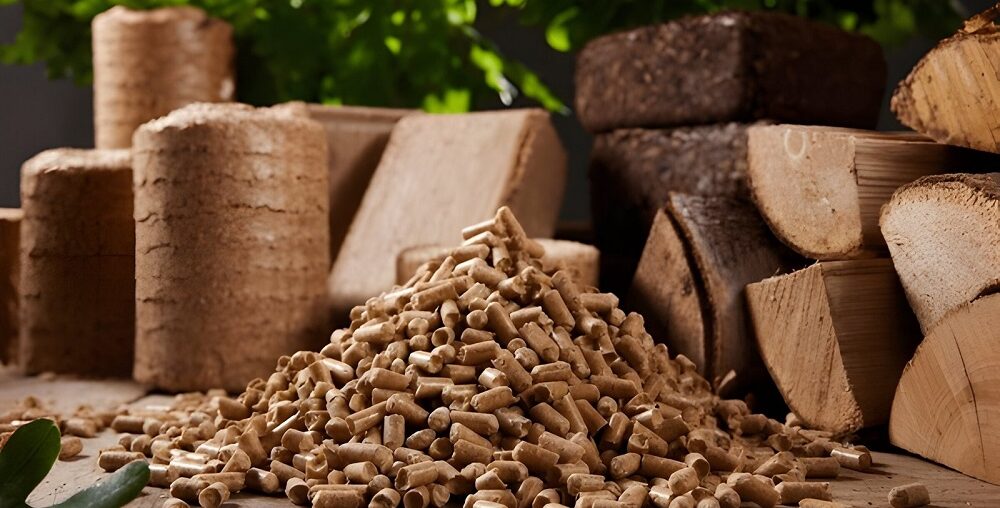Briquetting is a way to turn waste into useful and compact fuel blocks. It helps reduce waste and offers eco-friendly energy solutions. Today, briquetting is used in many new and exciting ways. They are helping industries and solving global issues, like waste and energy. In this article, we will explore how briquetting is used in the modern world.
What Is Briquetting?
Briquetting is a process that compresses waste into solid blocks called briquettes. These briquettes are easy to store, move, and use. Common materials for briquetting include wood waste, agricultural leftovers, and industrial by-products. This process is good for the environment and helps reduce pollution.
How Does Briquetting Work?
The process of briquetting is simple and involves these steps:
- Collecting Materials: Gather loose waste like sawdust, husks, or coal dust.
- Drying: Remove moisture from the materials to prepare them for compression.
- Compressing: A briquetting machine presses the materials into solid blocks.
- Cooling: Let the briquettes cool down to harden them.
Once ready, these briquettes can be used as fuel or for other purposes.
Innovative Uses of Briquetting
Briquetting is no longer just about making fuel. It is now used in many new and creative ways:
1. Renewable Energy
Briquettes are a popular alternative to coal and wood. They produce clean energy with less smoke. Many industries and homes use them for heating or generating power. They are a great way to reduce air pollution.
2. Managing Farm Waste
Farmers can turn agricultural waste like stalks and husks into briquettes. This helps reduce waste and creates an extra source of income for farmers. It also lowers the risk of pollution from burning waste in fields.
3. Heating in Factories
Many factories need heat for their production processes. Briquettes are a cheap, efficient fuel for ceramics and metal processing. They provide steady heat, improving the quality of the final products.
4. Making Better Charcoal
Briquetting has improved the way charcoal is made. Charcoal briquettes burn longer and cleaner than traditional charcoal. They are ideal for cooking, grilling, and heating.
5. Recycling Waste
Briquetting helps recycle materials like paper, plastic, and even metal waste. This process reduces landfill waste and promotes recycling. Companies save money on waste disposal and benefit from using these recycled briquettes.
6. Building Materials
Some briquettes are used as construction materials. They are durable and cheap. They are a greener alternative to bricks and other building materials.
7. Powering Bioenergy Plants
Bioenergy plants use biomass briquettes to produce electricity. This reduces the need for fossil fuels and supports the growth of renewable energy sources.
8. Cooking in Developing Countries
In many developing countries, briquettes are an affordable and clean cooking fuel. They are a healthier option compared to firewood, as they produce less smoke and heat food more efficiently.
9. Transport Fuel
Briquettes are being tested as a cleaner fuel for vehicles. Though still in development, this idea could cut transport pollution.
10. Aid in Emergencies
In areas hit by disasters, briquettes are used as a portable and efficient energy source. Relief organizations distribute them for cooking and heating in emergency shelters.
Benefits of Briquetting
Briquetting has many advantages, such as:
- Eco-Friendly: Reduces deforestation and cuts harmful emissions.
- Affordable: Uses waste materials, which are cheap or free.
- Easy to Store: Briquettes are small and easy to stack.
- High Energy: They burn longer and hotter than loose waste.
- Waste Reduction: Helps industries and farms manage waste efficiently.
The Future of Briquetting
Briquetting is becoming more popular as technology improves. Modern machines make the process faster and more efficient. Many governments support briquetting projects to promote clean energy. In the future, briquetting will likely expand into more industries. It will help reduce waste.
Conclusion
Briquetting is a simple but powerful way to turn waste into something valuable. Its uses in energy, farming, and industry are helping create a cleaner world. They also improve daily life. As more people understand its benefits, briquetting will continue to grow. It is a key solution for sustainable living in the modern world.




